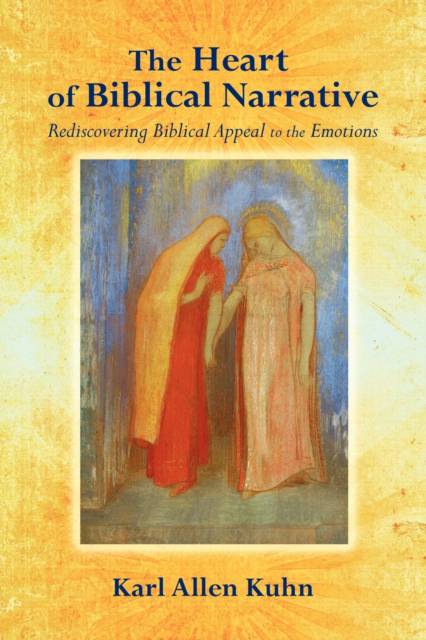
- Afhalen na 1 uur in een winkel met voorraad
- In januari gratis thuislevering in België
- Ruim aanbod met 7 miljoen producten
- Afhalen na 1 uur in een winkel met voorraad
- In januari gratis thuislevering in België
- Ruim aanbod met 7 miljoen producten
Omschrijving
Modern biblical scholarship has long been preoccupied with therelationship between history and doctrine. Karl A. Kuhn argues that anoverly rational approach to the thought of the biblical authors missesthe equally important but long neglected affective dimension ofbiblical narrative.
In Part I of The Heart of Biblical Narrative, Kuhn presents anapproach to the Bible that applies "affective analysis" to get at a"cardiography of biblical narrative." Biblical narrative in bothIsrael's scripture and the New Testament is understood fundamentallyas an attempt to persuade and move the reader, not simply to convincethe reader of certain truths.
In Part II, Kuhn's close reading of the opening chapters of Luke'sGospel shows how biblical authors employed pathos as a way of drawingreaders into their narrative and, thereby, their understanding of reality.
Specificaties
Betrokkenen
- Auteur(s):
- Uitgeverij:
Inhoud
- Aantal bladzijden:
- 176
- Taal:
- Engels
Eigenschappen
- Productcode (EAN):
- 9780800663384
- Verschijningsdatum:
- 1/04/2009
- Uitvoering:
- Paperback
- Formaat:
- Trade paperback (VS)
- Afmetingen:
- 154 mm x 229 mm
- Gewicht:
- 276 g

Alleen bij Standaard Boekhandel
Beoordelingen
We publiceren alleen reviews die voldoen aan de voorwaarden voor reviews. Bekijk onze voorwaarden voor reviews.









